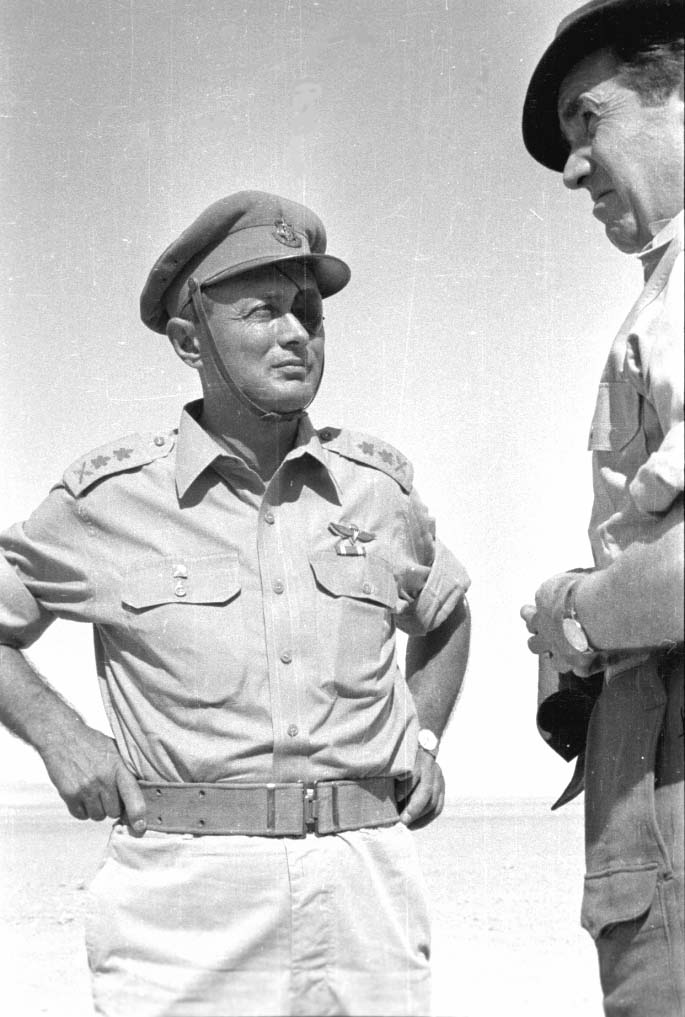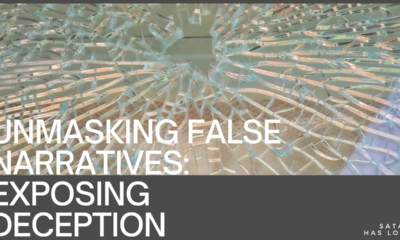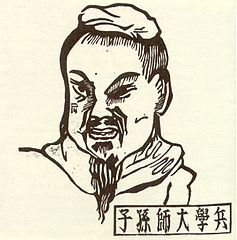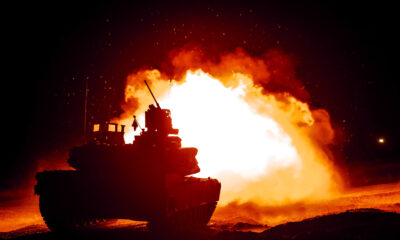Executive
War: fight to win!

Sun Tzu’s The Art of War, written about 500 B.C.E., is the oldest military treatise in the world. Even now, after twenty-five centuries, the basic principles of that treatise remain a valuable guide for the conduct of war.
Protracted war is worse than futile
Sun Tzu should be of interest to the General Staff of the Israel Defense Forces, in view of the Arab Terrorist War that erupted in September 2000. Since then more than 1,600 Jews have been murdered and many thousands more have been wounded and maimed by Arab terrorists.
Referring to the IDF’s limited response to this protracted war, the late Prime Minister Ariel Sharon once said, “self-restraint is strength”! Was Mr. Sharon’s dictum inspired by the Sermon on the Mount? Or was it derived from a misreading of Sun Tzu’s The Art of War? For it so happens that Sun Tzu would have a general exhibit, at first, “the coyness of a maiden” to draw out the enemy. but thereafter emulate the fierceness of a lion.
In contrast, Israeli prime ministers usually emulate a pussy cat. Instead of destroying the enemy, they follow the policy of self-restraint. They live in denial of the genocidal nature of the enemy. Otherwise, if they possessed a stitch of courage, they would have ordered the IDF to demolish the enemy to an extent that seared into Arab consciousness the lesson: Don’t mess with Israel.
Of course, when the forces of the enemy exceed your own or occupy superior ground, then self-restraint is prudence. But when this situation is reversed, self-restraint is weakness. In fact, Sun Tzu goes so far as to say, “If fighting is reasonably sure to result in victory, then you must fight, even though the ruler forbids it.” Can anyone imagine a Defense Minister like Moshe Ya’alon countermanding the peace-intoxicated Bibi, after having sent his soldiers to expel the Jews living in Gush Katif in Gaza, thus leaving a vacuum to be filled by Hamas, a client of Iran?
Sun Tzu was not a wimp, who slavishly advocated military subordination to political rulers. In referring to various ways in which “a ruler can bring misfortune upon his army,” hence on his people, Sun Tzu cautions a ruler against “attempting to govern an army in the same way as he administers a kingdom.” Although the general receives his commands from the sovereign, “he will win who has military capacity and is not interfered with by the sovereign.” Sun Tzu emphasizes that there are even occasions when the “commands of the sovereign must not be obeyed.”
Since this obviously violates the principle of military subordination to civilian authority, it would overawe Israel’s military elites, who want to preserve their democratic reputation. Never mind how many Jewish lives in Gush Katif were shattered by the servility of these elites marching in lock-step with political cravens.
Sun Tzu did not have to worry about journalists and humanists who make the rational conduct of war impossible, and who therefore prolong the killing. When U.S. Admiral Bull Halsey said, “Hit hard, hit fast, hit often,” he was merely echoing Sun Tzu’s advice.
We read in the Torah, “When you go forth to battle against your enemies” (Deut. 20:1). The Sages ask: “What is meant by ‘against your enemies’“? They answer: “God said, ‘Confront them as enemies. Just as they show you no mercy, so should you not show them any mercy.’“ Bibi didn’t even defend of an Israeli soldier that shot an incapacitated Muslim terrorist.
Sun Tzu would therefore be appalled by the readiness with which Bibi engages in cease fires, which allow Arab terrorists to regroup, accumulate more and deadlier weapons, and thus prolong the war. Sun Tzu calls for the uninterrupted attack. He unequivocally opposes a protracted war: “There is no instance,” he says, “of a country having benefited from protracted warfare.”
But protracted war is the inevitable result of the supposedly humanitarian policy of self-restraint pursued by Israeli governments. And notice how Washington is always preaching self-restraint – Hiroshima and Dresden notwithstanding.
Lessons from Clausewitz

Carl von Clausewitz. Portrait by Karl Wilhelm Wach during his service as a general officer in the Prussian army.
Some years ago, while teaching officers at Bar-Ilan University, I learned to my dismay that Israel’s Command and Staff College did not teach Clausewitz’s classic On War. It shows in the benevolent behavior of the Israel Defense Forces (IDF) toward Israel’s enemy in the very midst of armed conflict. Clausewitz warns that “in such dangerous things as war, the errors which proceed from a spirit of benevolence are the worst.”
Recall the Yom Kippur War, in which 3,000 Jewish soldiers perished. Certain general officers of the IDF obeyed the commands of the Golda Meir Government by not launching a pre-emptive attack. Later, the Agranat Commission of Inquiry blamed them for the disaster. Sun Tzu would have agreed with that conclusion, but of course for different reasons. He would have faulted the generals for “self-restraint,” that is, for heeding the commands of their Government.
It’s obvious that Israeli governments have lacked the will to win the Terrorist War that Yasser Arafat initiated in September 2000; they lack the will to vanquish the enemy in the shortest possible time. By their failure to practice the basic principles of war, they multiply the number of Jewish casualties. Let’s elaborate on Clausewitz.
Clausewitz defines war as “an act of violence intended to compel our opponent to fulfill our will. Violence is the means; submission of the enemy to our will the ultimate object.” For as long as the enemy remains armed, he will wait for a more favorable moment for action.
The ultimate object of war is political. To attain this object fully, the enemy must be disarmed. Disarming the enemy “becomes therefore the immediate object of hostilities. It takes the place of the final object and puts it aside as something we can eliminate from our calculations.” In other words, first disarm the enemy, subject him to your will. The political comes later.
The statesman must take into account not only the forces of the enemy. He must solidify the confidence and determination of his people. They must believe in the justice of their country’s cause and understand the importance of victory as well as the consequences of defeat. The statesman must display political wisdom, moral clarity, and decisiveness.
Above all the statesman must have, in his own mind, a clear view of his post-war goal or political object. The political object will determine the aim of military force as well as the amount of force or effort to be used.
Here is where Netanyahu, following his two predecessors, Ariel Sharon and Ehud Olmert, spells disaster. His stated political object is a Palestinian state, for which he needs a “negotiating partner,” today, Mahmoud Abbas.
It was because he advocated a Palestinian state that Sharon did not destroy the entire Arab terrorist network in Judea, Samaria, and Gaza. This is why he employed limited means – targeted killings and destruction of some Arab bomb factories – but never a full-scale attack to win the war and so devastate the enemy as to eradicate the enemy’s desire to wage war for a hundred years, as the Allied powers did in Germany and the United States in Japan.
Had Israel’s Government destroyed the enemy, as it could have been done in two weeks after 9/11, the international howl that might then have erupted would have subsided with the fall of the Twin Towers, and Jews in Israel would once again walk upright, proud and confident in Israel’s future.
Sadly, all they have now is Netanyahu’s PCmanship. He seems oblivious of the fact that every sign of Israeli weakness not only encourages Muslims, the avowed enemies of the Jewish people, but also prompts the hypocrites of democracy to join them. Not only the Arabs go with the strong horse, as Lee Smith has shown; so do weak-kneed leaders of democracies.
Israel stands alone among the nations. Iran may not bother to erase Israel from the map. Tehran may leave this task for Israel’s Government, who’s Prime Minister inspired Pope Francis by endorsing a Palestinian state!
-

 Executive4 days ago
Executive4 days agoThe Hunters Have Now Become The Hunted: Their Cruelties Are Swelling The Ranks Of The People Worldwide!
-

 Clergy3 days ago
Clergy3 days agoWhy Do The American People Let The Corrupt Media & Politicians Set The Propaganda Narrative – Speak On Their Behalf
-

 Constitution4 days ago
Constitution4 days agoCHAPTER 9: Norman Dodd Interview Space Is No Longer the Final Frontier––Reality Is [upcoming release April 2024]
-

 Entertainment Today3 days ago
Entertainment Today3 days agoCivil War (2024) – an incomplete prediction
-
![CHAPTER 10: Objective Reality Is Required for a Free Society Space Is No Longer the Final Frontier—Reality Is [upcoming release May 2024]](https://cnav.news/wp-content/uploads/2024/04/Objective-reality-v-acceptance-400x240.png)
![CHAPTER 10: Objective Reality Is Required for a Free Society Space Is No Longer the Final Frontier—Reality Is [upcoming release May 2024]](https://cnav.news/wp-content/uploads/2024/04/Objective-reality-v-acceptance-80x80.png) Education3 days ago
Education3 days agoCHAPTER 10: Objective Reality Is Required for a Free Society Space Is No Longer the Final Frontier—Reality Is [upcoming release May 2024]
-

 Human Interest2 days ago
Human Interest2 days agoIdaho prepares to defend its abortion ban
-

 Executive5 days ago
Executive5 days agoNational Security Implications of Baltimore Bridge Catastrophe
-

 Executive5 days ago
Executive5 days agoCalifornia Dems Tout Ties to Criminal Leniency Group














